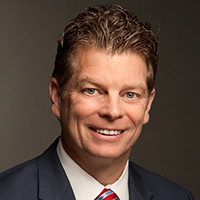 Hello TMG Community! We are super excited to introduce a new interview series with leading Due Diligence professionals. Here you will hear from a variety of leaders from a variety of disciplines on subjects that affect your business.
Hello TMG Community! We are super excited to introduce a new interview series with leading Due Diligence professionals. Here you will hear from a variety of leaders from a variety of disciplines on subjects that affect your business.
For our first we sat down with Patrick Paul, Environmental and Land Use Partner at Snell & Wilmer, a law firm based in Phoenix with offices throughout the Mountain Region and Southwest, including Mexico! You can learn more about his practice at https://www.swlaw.com/people/patrick_paul.
TMG: Patrick, you lead environmental and land use at the largest firm in AZ and the Southwest. What due diligence trends are seeing? (Volume and type of transactions perhaps)?
PP: Over the last year or so, including during this pandemic period, I have been pleasantly surprised to witness growth in the due diligence area that for the most part seems less impacted by current economic conditions. More particularly, I see deals already in progress continue forward but also see the onset of new deals providing opportunities for those in land use and environmental due diligence such as contractors, engineers, and technical consultants.
TMG: Can’t escape the COVID question. How has your practice been impacted? What adjustments has your team had to make?
PP: Notwithstanding some continued strength in the overall practice and due diligence in particular, there have been ramifications, likely unavoidable, associated with the Covid-19 pandemic. For example, I am aware of construction delays caused by positive tests in construction crews many of whom commute and/or temporarily reside together during project construction. Obviously, communications have also proved challenging in the sense that in-person meetings which used to be the order of the day are now almost nonexistent. The handshake has largely given way to the elbow bump or nod of the head. While videoconferencing has helped fill a void, it has proved to be an imperfect fix with consistent technical challenges often resulting in delays that might not present in more traditional times.
TMG: What are clients demanding / requiring now than they may not have maybe three years ago?
PP: I think responsiveness continues to be the highest priority for clients. Certainly, over the last decade or so it had been trending that way with expectations that service providers be available almost around-the-clock. The pandemic and increased use of one’s personal cell phone as a work phone has accelerated that trend such that in many instances there is no start or end to a work day or work week. Don’t get me wrong, this is not a complaint, just a recognition of the reality of the times and even clients themselves who may have been reluctant in the past to make their personal cell phones available are now doing so. Additionally, I am also seeing that trend among government employees, regulators, license and permit providers and the like. As our children are increasingly educated at home, so too is much of the rest of the world conducting commerce.
TMG: We have always said the attorney / consultant team is advantageous for the client. What advice would you give my (consultant) industry when coming on board the due diligence team?
PP: This is a delicate issue and I suspect there is no “right” answer. All service providers compete with one another within their traditional lanes, and often across those lanes, whether attorney, accountant, or consultant. I wouldn’t presume to be able to advise on this issue but certainly can comment on where I think opportunities for success reside. Simply put, the greater adherence to one’s own area of expertise and willingness to engage, or recommend the engagement of, a service provider outside of their area, the greater the appreciation and thus perhaps trust from the provider on the receiving end of that engagement or recommendation.
Also, I’d suggest all service providers continue to work to develop and maintain relationships across lanes of expertise and be willing from time to time to accept an inquiry or call and provide a gut check without having to go through a formal engagement. In that moment, while formal engagement might not present, the further development of a relationship will and likely will lead to a more productive engagement down the line.
Develop and maintain the relationship. Be responsive. Be appreciative. If those things occur, good things will follow.
Interested in continuing the conversation? Patrick may be reached at 602-382-6359 and [email protected]. TMG also welcomes the opportunity for a friendly conversation, so reach out at anytime.
Stay tuned next month when we sit down with another leading Due Diligence Professional.
